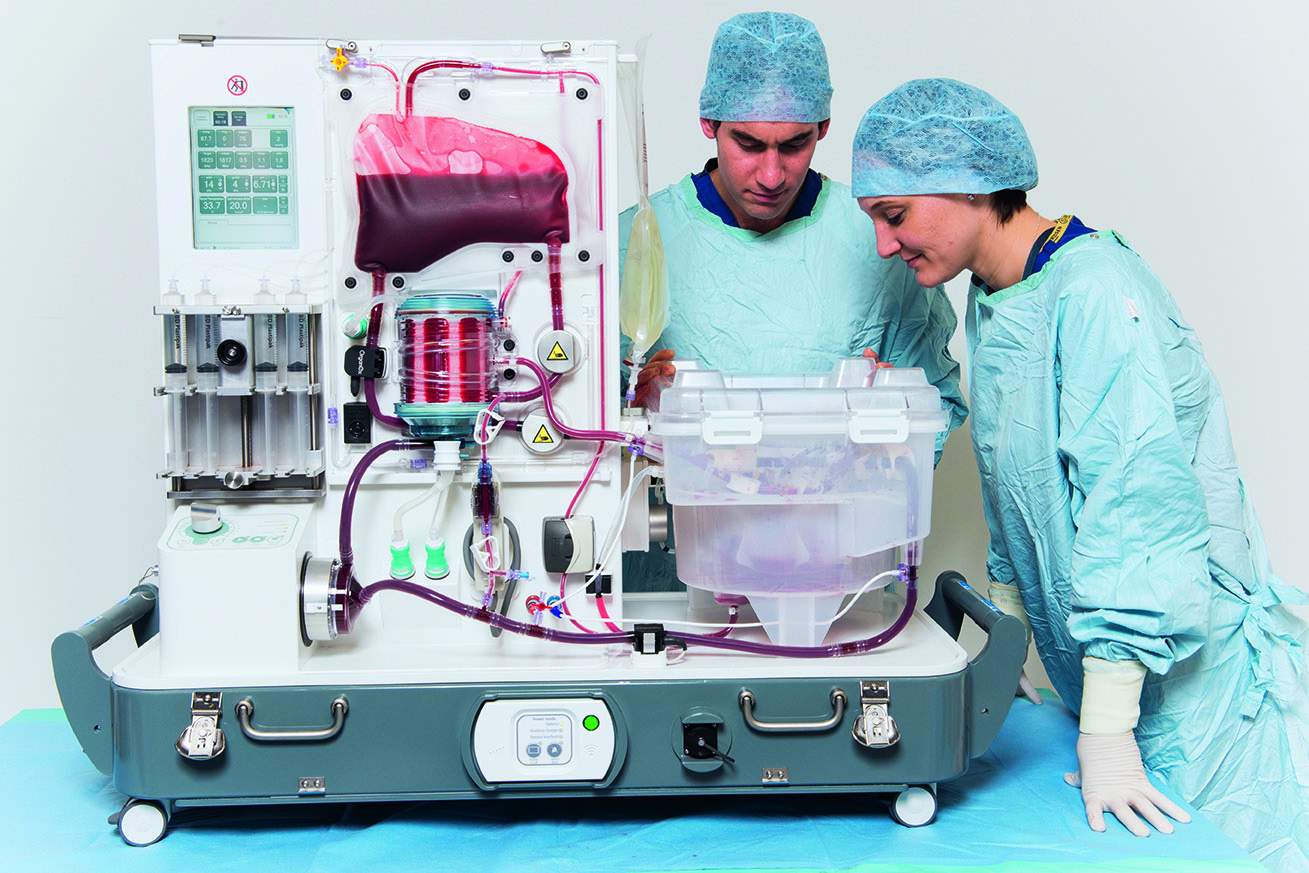Normothermic machine perfusion
A medical revolution in organ treatment

with kind approval of OrganOx
Successful clinical implementation of machine perfusion has already been achieved for heart, lung, liver and kidney. heart: ardehali a et al, Lancet. 2015;385:2577 Lung: Cypel M et al, n engl J Med. 2011;364:1431 Liver: nasralla D et al, nature. 2018;557:50 kidney: Weissenbacher a et al. am J Transplant. 2019;19:178
Conventionally, organs are cooled to 4°C in order to limit the damage during the phase of storage after donation. However, marginal and older donor organs are particularly susceptible to damage during cold storage and subsequent rewarming during transplantation. The resulting damage is termed ‘ischemia/reperfusion injury’.
Normothermic machine perfusion (NMP) introduces a new era in organ storage and treatment. The benefits include less damage to the donor organs, preserved organ quality, extended storage time, enhanced assessment of organ function, and reduced organ loss.
The donated organ is maintained extracorporeally – on an artificial blood circuit, inside a ‘mini intensive care unit’. This enables blood circulation under close-to-physiologic conditions and helps to maintain and monitor organ function.
Major advantages of NMP in contrast to cold storage:
1. Less organ damage
2. Improved assessment of organ quality
3. Suitability/eligibility for organ treatment




